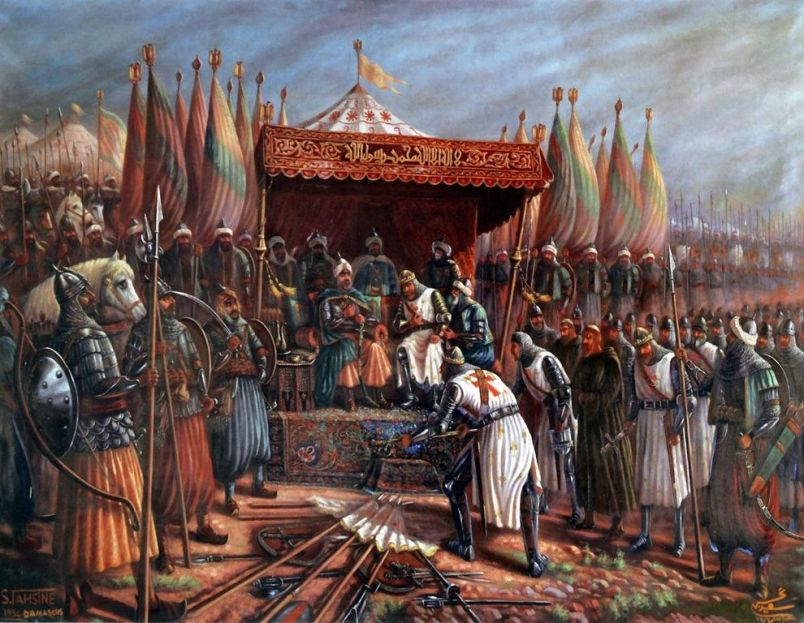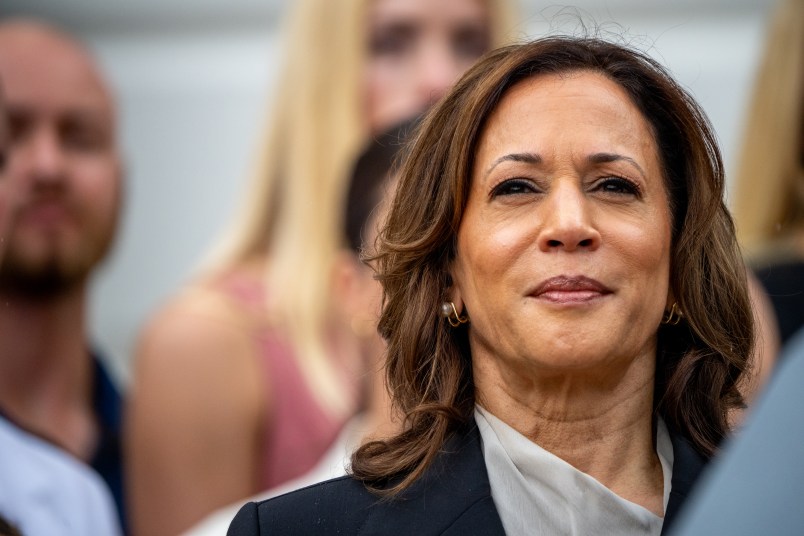We spend every day listening to cable news all day long. Literally. So our prism is something of a distorted one. But through every channel and medium through which I absorb the national political debate, it was impossible to miss the tsunami of silly that overcame the nation yesterday as we focused on what is apparently the most critical aspect of evaluating the danger of and fighting ISIL: namely, the vocabulary we use. Who cannot take note of the fact that armchair warriors and toughs who generally have no patience with words and think only force counts seem to believe that the great national question before us comes down to what words we use? Let’s call this faction the verbalists.
I will confess that I too sometimes find it trying that President Obama and administration officials studiously avoid using the terms ‘Islamic extremism’ and the like. We are self-evidently not seeing a rise in violent extremism around the globe of which Muslims equally take part on some proportional basis with other religions, adherents to other ideologies and secularists. This is clearly a problem, a bacillus playing out, within Islam, and affecting those both within and without it. And yet, studiously avoiding phrasing and constructs which tend to portray a general conflict between the West, modernism and/or Christianity and Islam is hardly without merit or a very cogent theory behind it. Indeed, as he was rotting away, isolated in his compound in Abbottabad, Osama bin Laden himself seemed to grasp that President Obama’s de-escalation and disuse of phrases like ‘War on Terror’ and various Bush era terms had managed to damage the al Qaida brand.
As David Ignatius wrote almost three years after reviewing documents from bin Laden’s compound …
The al-Qaeda brand had become a problem, bin Laden explained, because Obama administration officials “have largely stopped using the phrase ‘the war on terror’ in the context of not wanting to provoke Muslims,” and instead promoted a war against al-Qaeda. The organization’s full name was “Qaeda al-Jihad,” bin Laden noted, but in its shorthand version, “this name reduces the feeling of Muslims that we belong to them.” He proposed 10 alternatives “that would not easily be shortened to a word that does not represent us.” His first recommendation was “Taifat al-tawhid wal-jihad,” or Monotheism and Jihad Group.
I would be more than remiss if I did not here state the obvious: that a huge amount of this whole conversation is simply one more front in the effort to suggest, to insinuate or just flat out say that President Obama isn’t just weak or misguided but is somehow a bit Muslimy himself if not quite a full out Muslim or jihadi. Certainly not one of us, doesn’t love America, as Rudy Giuliani and Scott Walker put it. But even if we take these criticisms at face value, in any conceivable strategic reasoning, it is in our interests to isolate ISIL and al Qaida-like groups within the geographical and mental world of Islam – and vice versa for them. So valorizing ISIL as somehow the epitome of Islam is not only demonstrably untrue in any historical sense it is clearly strategically unhelpful. So is anything that sustains the impression or suggests that we as the West or the United States believe that the conflict with ISIL is actually part of a deeper conflict with Islam or the entirety of the Muslim world. What religions may be in metaphysical terms or whatever God may think of them, historically, they have little that can be called an essence. They tend to be highly malleable in historical terms.
Nor is truth, in whatever sense we want to define it, the only stakeholder we need to tend to. We have no deep national interest in the intricacies of Islamic theology. We have no strategic interest in the correct interpretation of the acts of the Prophet Muhammed. We have an immediate interest in isolating and destroying violent rejectionist groups like ISIL because they threaten us directly through potential terrorist attacks and they unsettle and barbarize areas of the globe where we have immediate strategic interests. Whatever phrasings we use should be seen through that prism.
Again, any acute strategy involves limiting not expanding your roll of active enemies. This is obvious. It is also why we allied with the Soviet Union to combat Nazi Germany. It is why we accepted quasi-fascist regimes like Franco’s in the context of the Cold War. Strategy involves choices and it also requires some non-grandiose estimation of our own resources, just how many fights we can have on how many fronts at once.
I had a twitter exchange yesterday (non-vitriolic, even while disagreeing, which I appreciate) in which the guy I was talking to said that among other things what was important about using phrases like “Islamic extremism” was that without it we would not realize that we are just as much at war or threatened by the Muslim Brotherhood as we are by ISIL. I don’t think that’s true – though there are very significant questions about the essential character and ambitions of the contemporary Muslim Brotherhood. But even if it were true, it is not at all clear what we gain by trumpeting the point in our public advocacy or propaganda. Do we really want to fight both at once? Does that serve our purpose or does it make more sense to keep that conflict on the sidelines while we deal with ISIL? Or to put the point even more maximally, if we are really at war with Islam or the greater part of it, how exactly do we propose that plays outs since Muslims account for something like a quarter of the world’s population. To paraphrase Napoleon’s chief of police Joseph Fouche (there is some dispute over just who said it), these claims are worse than untrue they are unwise.
I too sometimes wonder whether the Obama folks get a bit too rigid with this verbal discipline. But really, who cares? It might be of interest to our own preening or mental gymnastics. But it only takes on vast importance if your angle is a fundamentally tendentious one of domestic score settling or if you’ve bought into the idea (which I’ve allowed to here) that what really matters in the world is the clarity and number and repetition by which you identify people as evil.
Another matter of strategy we should note (apropos of bin Laden’s concern from that same column I referenced above about how al Qaida had been damaged by killing so many Muslims) is that two Arab States have launched armed assaults against ISIL in the last month – not as nominal junior members of American led attacks but on their own account. That is a very big deal. And something like unprecedented in just this context.
ISIL has also been losing ground on the ground on its peripheries in Syria and Iraq. Not a lot. But they’re receding on their home turf, not growing. Again, that is a big deal. Indeed, it seems to be driving the increasingly aggressive execution videos, a projection of strength through brutality to offset weakness on the ground.
ISIL’s public executions are horrific. They show something about the essence of the organization. But they should hardly be driving strategy. It hardly matters to us at a fundamental strategic level whether ISIL executes people with guns in the dark or by decapitation on video. Indeed, the immolation of the Jordanian pilot seems to have damaged ISIL’s standing among restive populations it must recruit from.
The obsession with words is either preening or folly or bad faith. Get a life, devise a reasonable military and hearts and minds strategy and get on with it.








